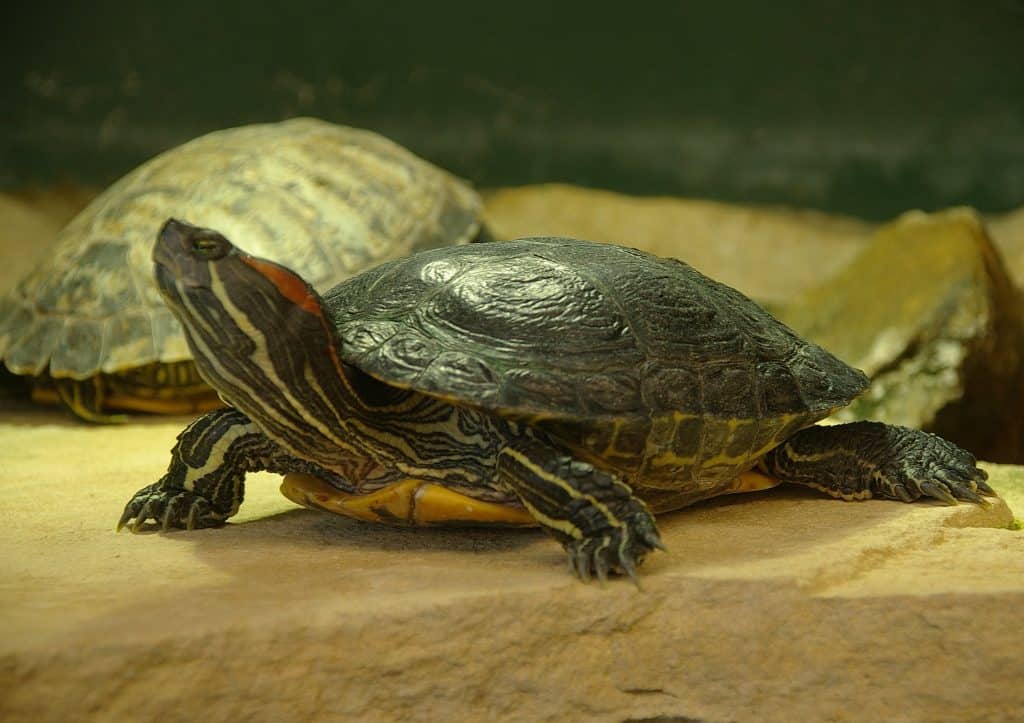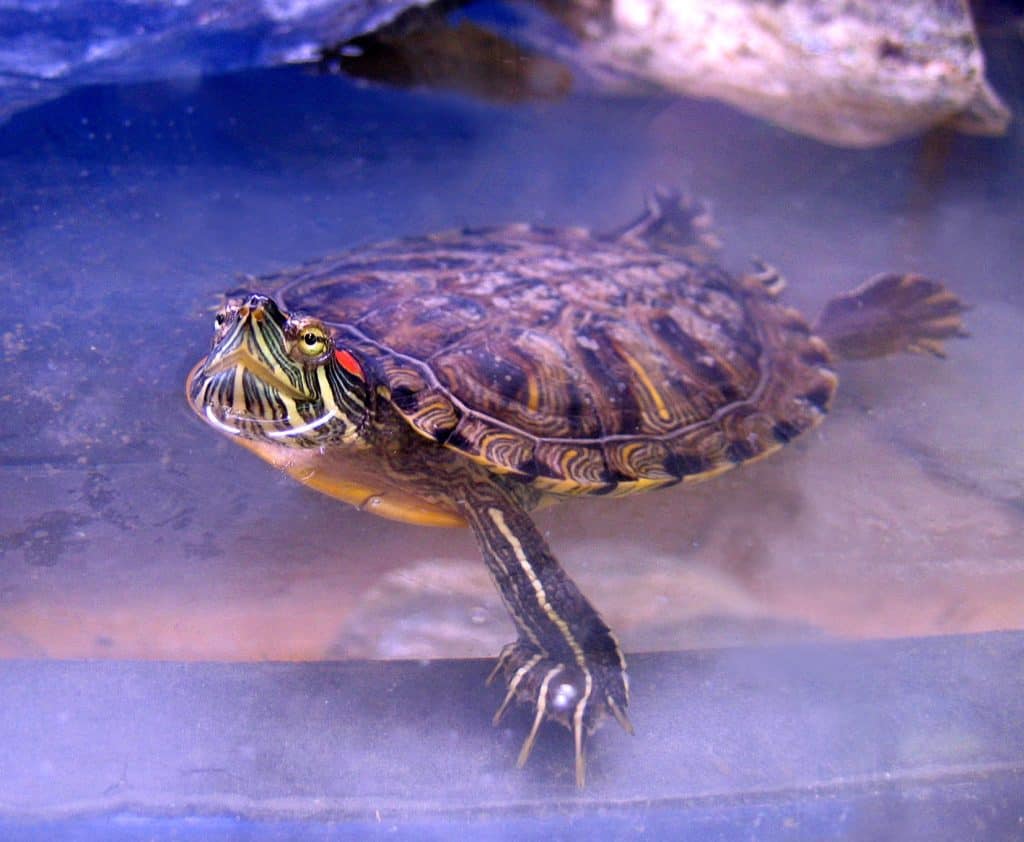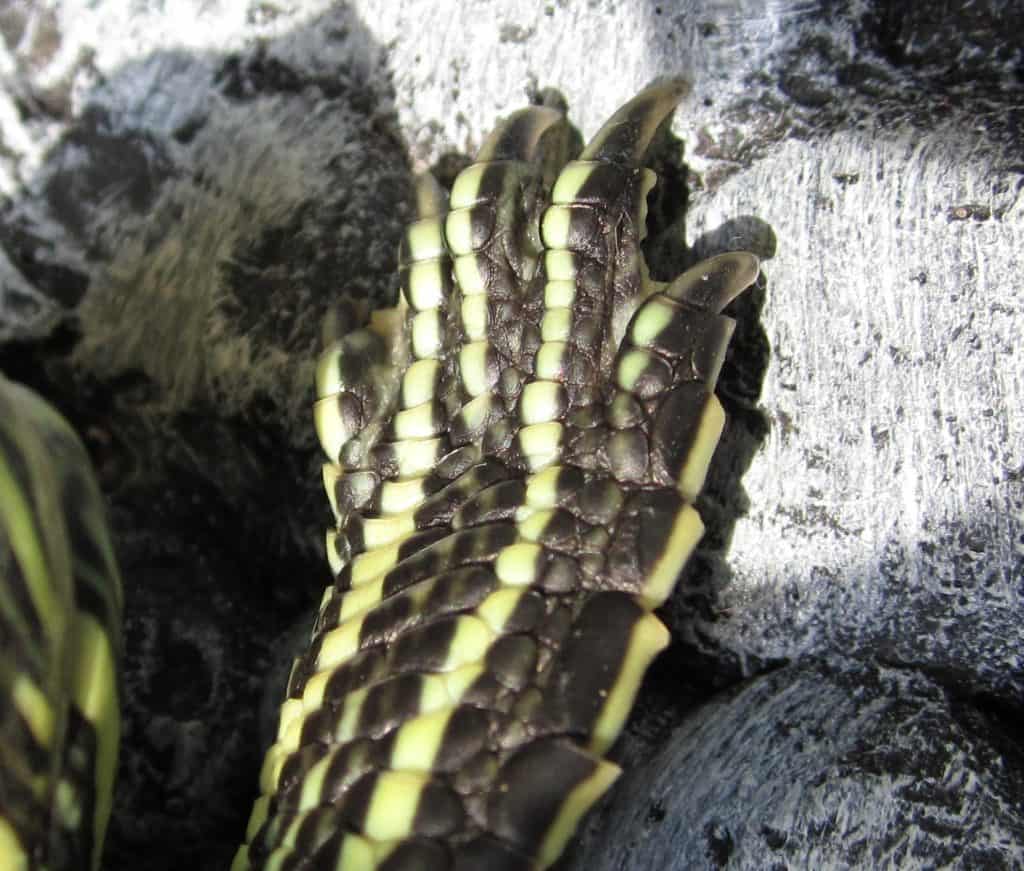The red-eared slider (Trachemys scripta elegans) is a semi-aquatic turtle native to the southern United States and northern Mexico. However, this species has been introduced to various regions worldwide as pets or for commercial purposes. In Israel, the red-eared slider is a common invasive species, known to impact the native ecosystem negatively.

Red-eared Slider in Israel
Red-eared sliders were first introduced to Israel in the 1990s as pets, and some may have been released or escaped into the wild. They are now in several water sources nationwide, including streams, rivers, ponds, and artificial pools in parks and residential areas. The turtles are adaptable and resilient and can survive in various habitats, from freshwater to brackish water and even salt water.

Credit: Monika Korzeniec, CC BY-SA 3.0, via Wikimedia Commons
One of the significant concerns regarding the red-eared slider in Israel is its impact on native turtle species. Israel has three native freshwater turtle species: the Greek tortoise, the African Softshell Turtle, and the Egyptian tortoise. These species are endangered or critically endangered due to habitat loss, poaching, and other threats. Red-eared sliders compete with native turtles for resources such as food, basking sites, and nesting sites. They can also hybridize with native turtles, leading to genetic pollution and loss of biodiversity.
The Slider and the Environment
Furthermore, red-eared sliders can carry diseases and parasites that can affect native turtles, which may have no immunity to these pathogens. Another concern is the impact of red-eared sliders on the aquatic ecosystem. They are voracious predators and can consume various plants and animals, including fish, frogs, insects, and even small mammals. This can disrupt the food chain and alter the composition of the ecosystem, leading to further ecological consequences.

Credit: AORV, CC BY-SA 3.0, via Wikimedia Commons
In conclusion, the red-eared slider in Israel is a serious threat to the native ecosystem, and measures need to be taken to control their population and prevent its further spread. This may include trapping and removing individuals from the wild, public education campaigns to discourage the release of pet turtles into the environment, and stricter regulations on the import and trade of non-native species. So by taking these actions, we can help protect Israel’s natural habitats’ biodiversity and ecological integrity.

